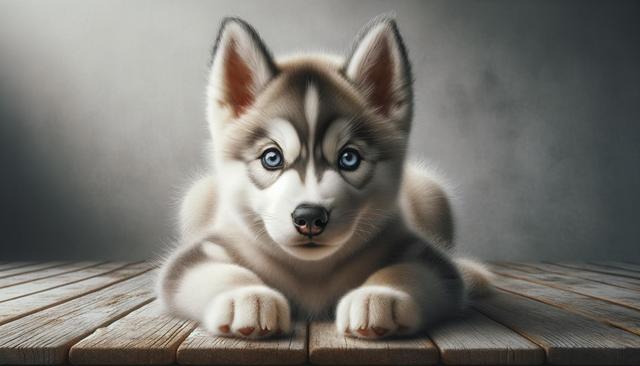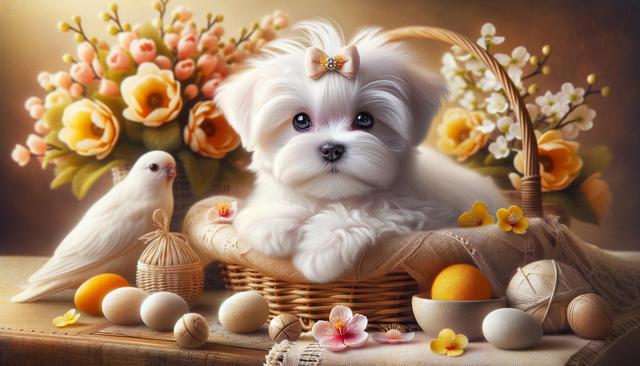The Unique Temperament of Siberian Husky Puppies
Siberian Husky puppies are energetic, intelligent, and social animals with a distinct pack mentality. These traits can make them both delightful companions and a challenge for first-time dog owners. Their temperament is shaped by their origins as sled dogs in cold climates, where teamwork, endurance, and independence were essential. Huskies are naturally curious and adventurous, often requiring guidance to prevent mischief or escape attempts. Without proper training, their intelligence can lead to stubborn behavior.
Husky puppies thrive on interaction and can become bored or anxious if left alone for too long. This can result in unwanted behaviors such as howling, digging, or chewing. They are not typically aggressive but can be dominant if not properly socialized. Early exposure to other dogs, people, and various environments helps shape a well-mannered adult Husky. Consistent training and positive reinforcement are essential tools for developing a well-adjusted companion.
Training and Socialization Tips
Training a Siberian Husky puppy requires patience, consistency, and an understanding of their independent nature. Unlike more obedient breeds, Huskies may not always respond to commands simply to please their owners. Instead, they require motivation, often through treats, toys, or praise. Starting training from an early age is crucial for laying a solid foundation.
Helpful training tips include:
- Use positive reinforcement techniques like treats and verbal praise
- Keep training sessions short and engaging
- Be consistent with commands and rules
- Enroll in puppy obedience classes for structure and socialization
Socialization is equally vital. Introducing your Husky puppy to new people, pets, and situations helps prevent fearfulness or aggression later in life. Huskies can be friendly with strangers and other dogs, but they benefit from structured introductions to avoid overstimulation. Crate training can also support housebreaking and provide a safe space for rest and downtime.
Exercise and Mental Stimulation
Due to their working-dog background, Siberian Huskies have high energy levels and require substantial daily exercise. Without sufficient physical activity, puppies may channel their energy into destructive behavior. A simple walk is rarely enough for this breed—they need opportunities to run and play freely in secure, fenced areas.
Recommended activities include:
- Daily brisk walks or jogs
- Interactive games like fetch or hide-and-seek
- Agility training or canine sports
- Playdates with other dogs
In addition to physical exercise, mental stimulation is critical. Puzzle toys, training exercises, and new experiences keep their minds active. Boredom can quickly lead to behavioral issues, so it’s important to keep your puppy mentally and physically engaged. Rotating toys and introducing new environments regularly can greatly benefit their cognitive development.
Grooming and Coat Maintenance
One of the most recognizable features of Siberian Huskies is their thick, double-layered coat. While it offers protection against harsh weather, it also requires consistent grooming. Husky puppies begin to develop their adult coats around six months of age, at which point shedding becomes more noticeable. Regular grooming helps manage this and keeps their coat healthy.
Essential grooming practices include:
- Brushing several times a week to remove loose fur
- Using a de-shedding tool during seasonal shedding periods (spring and fall)
- Bathing only when necessary to preserve natural oils
- Routine ear cleaning and nail trimming
Despite their thick coats, Huskies are surprisingly clean dogs with little natural odor. However, neglecting grooming can lead to matting and excessive shedding. Starting grooming habits while your puppy is young helps them become accustomed to handling and makes the process easier as they grow.
Nutrition and Health Care for Growing Huskies
Proper nutrition is essential for the healthy growth and development of a Siberian Husky puppy. Due to their active nature, they require a balanced diet that supports their energy needs and maintains a healthy weight. Choosing high-quality puppy food with the right blend of protein, fat, and essential nutrients is key during their first year of life.
Key considerations for feeding include:
- Feeding three to four small meals daily during the early months
- Transitioning to two meals per day by around six months
- Monitoring portion sizes to prevent overfeeding
- Providing fresh water at all times
In addition to nutrition, regular veterinary care is vital. Puppies need a series of vaccinations, deworming treatments, and flea prevention during their first few months. Regular checkups help monitor growth, detect potential health issues early, and establish good care habits. Huskies are generally healthy, but they can be prone to specific conditions such as hip dysplasia and certain eye disorders. Working with a trusted veterinarian ensures your puppy gets off to a strong start.
Conclusion: A Rewarding Journey with Your Husky Puppy
Raising a Siberian Husky puppy is an exciting and fulfilling experience for individuals or families prepared for the commitment. Their intelligence, beauty, and spirited personalities make them memorable companions. However, their high energy levels and independent mindset require dedicated training, socialization, and structure. With the right approach and consistent care, a Husky puppy can grow into a well-rounded, loving member of your household. If you’re ready for an adventure and have the time to invest, a Siberian Husky puppy may be the right addition to your life.




Leave a Reply